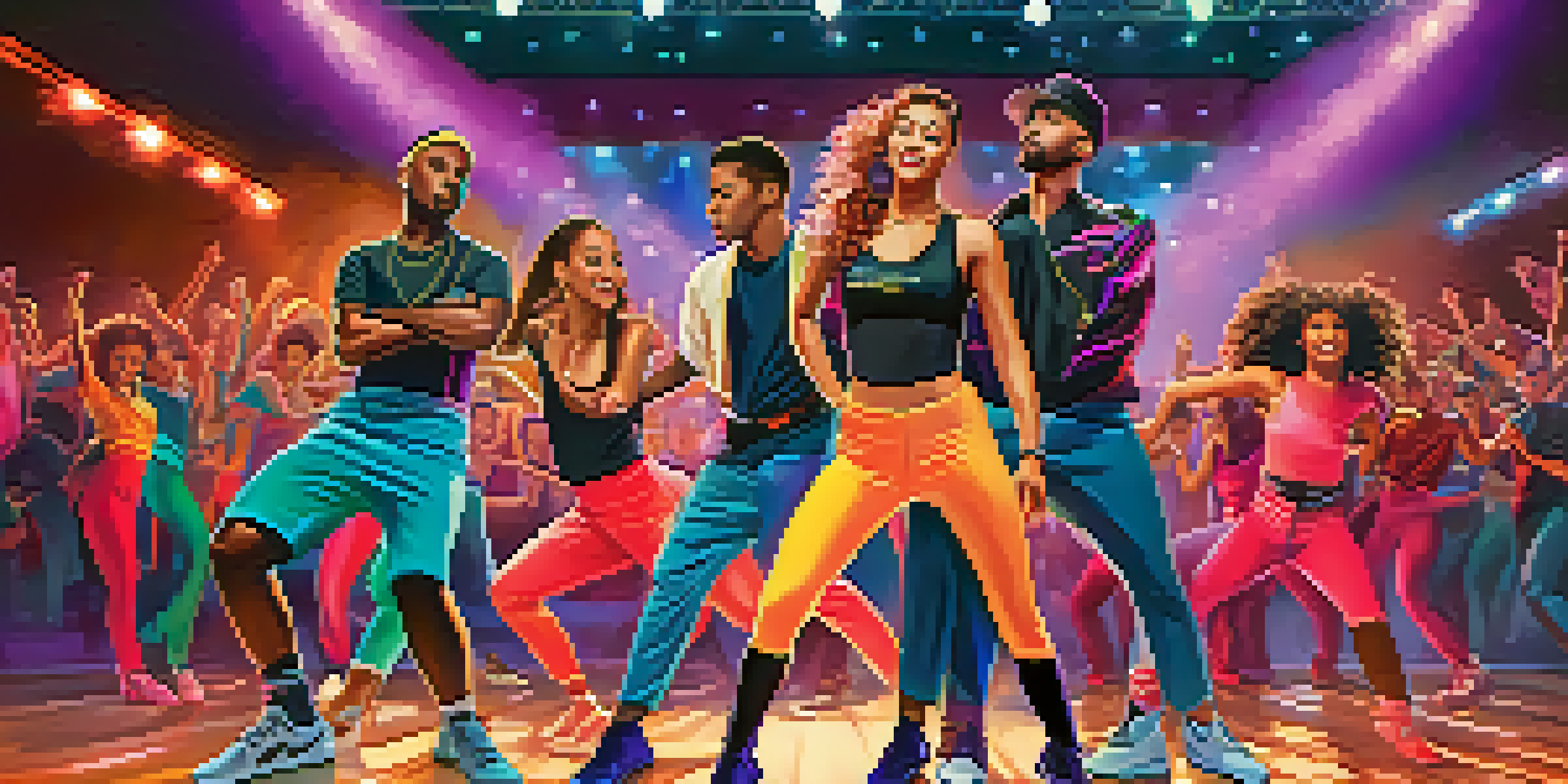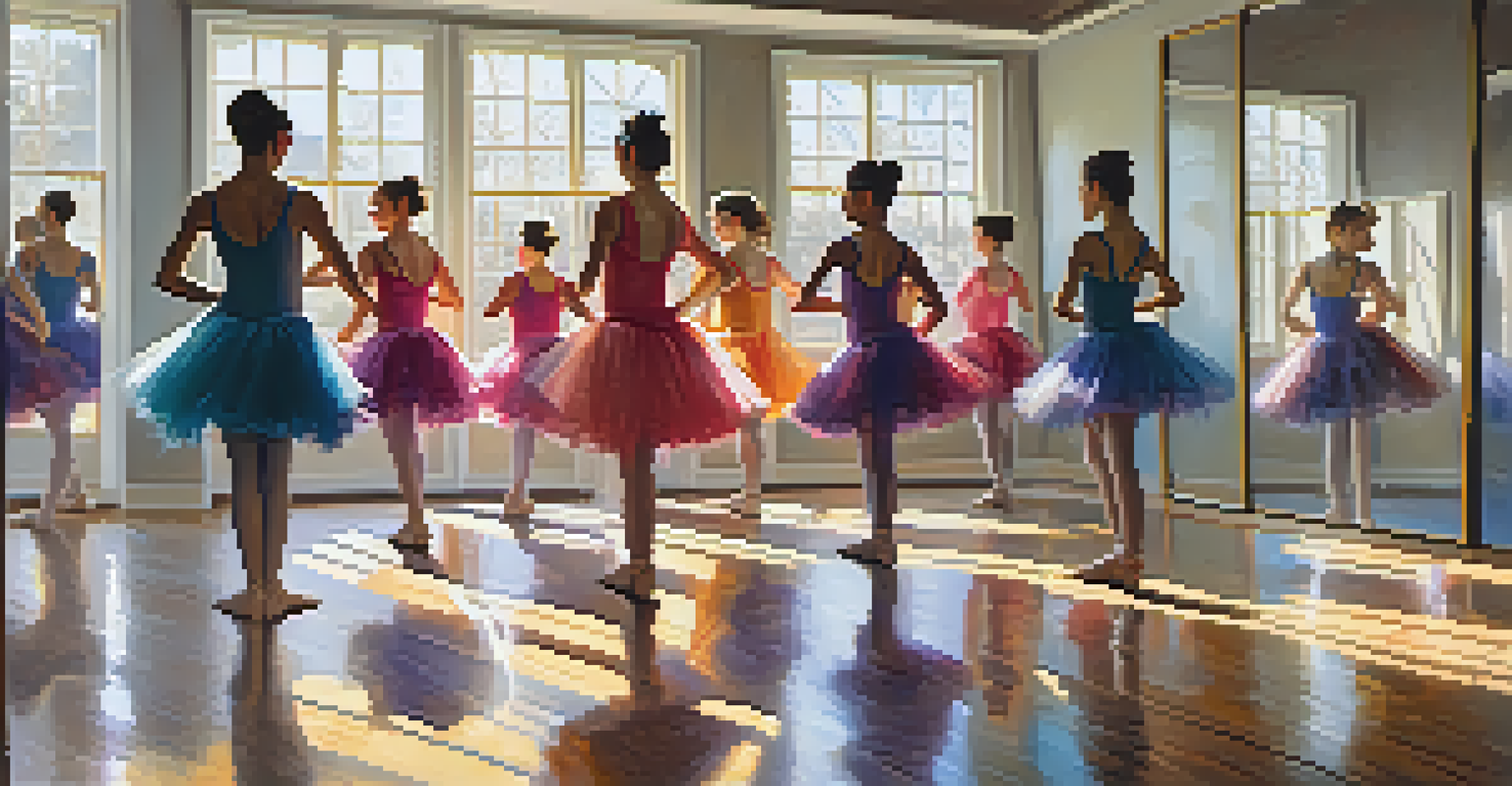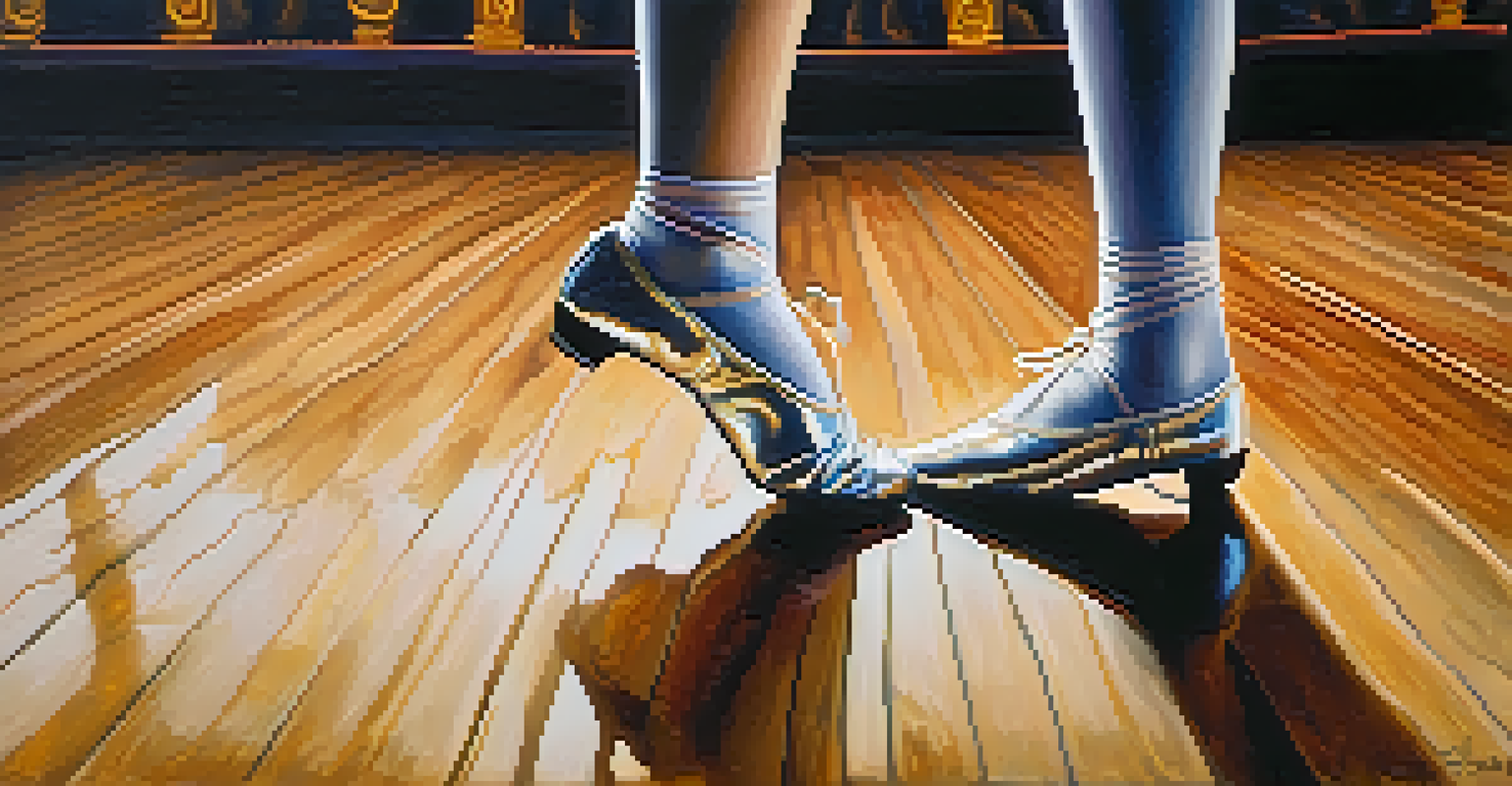How to Choose the Right Dance Competition for Your Style

Understanding Your Dance Style and Goals
Before diving into the world of dance competitions, it's essential to understand your unique dance style and what you hope to achieve. Are you focused on performance, skill enhancement, or simply having fun? Knowing your goals will help narrow down the competitions that align with your vision.
Dance is the hidden language of the soul.
Different dance styles, whether ballet, hip-hop, or contemporary, often have competitions specifically tailored to them. Each competition may emphasize various aspects like choreography, technique, or performance quality. By identifying your dance style, you'll be better equipped to find competitions that celebrate and challenge your abilities.
For example, if you're a hip-hop dancer interested in urban culture, look for competitions that prioritize street dance styles and have judges familiar with the nuances of the genre. This alignment can make a significant difference in your experience and growth as a dancer.
Researching Competition Formats and Levels
Dance competitions come in various formats, including solo, duet, group, and even virtual options. Understanding these formats is vital as they can influence your experience and the type of performance you want to showcase. Some dancers thrive in a solo environment, while others feel more comfortable in a group setting.

Moreover, each competition may cater to different skill levels, from novice to advanced. It’s important to choose a competition that matches your current skill level to ensure a positive and constructive experience. Competing at the right level helps you gain confidence while also providing valuable feedback.
Identify Your Dance Goals
Understanding your unique dance style and goals is crucial for selecting competitions that align with your vision.
For example, if you're just starting out, entering a novice category will allow you to grow without feeling overwhelmed. On the other hand, more experienced dancers may seek out advanced competitions that challenge their skills and push them to new heights.
Evaluating Competition Locations and Accessibility
Location can play a significant role in your competition experience. Consider whether you are willing to travel to participate or if you prefer something more local. Some dancers thrive in larger venues, while others feel more at home in smaller, community-focused settings.
The only way to do great work is to love what you do.
Accessibility is another factor to keep in mind. Ensure that the venue is easy to reach and has the necessary amenities, such as parking and accommodations if you're traveling from out of town. A comfortable and stress-free environment can enhance your performance and overall enjoyment.
For instance, if a competition is held in a city known for its vibrant dance scene, it could also offer opportunities for networking and learning from other dancers. However, if travel is a barrier, local competitions can provide the same adrenaline rush without the added logistical complexities.
Considering Judges and Their Expertise
The expertise and background of the judges can significantly impact your competition experience. Researching who will be judging the event can provide insight into what they value in performances. Different judges may prioritize technique over artistry, or vice versa, so understanding their perspectives can help you prepare accordingly.
Some competitions feature judges who are well-known in the dance community, offering a unique opportunity for valuable feedback and potential mentorship. On the other hand, local competitions may have judges who are more familiar with community dance culture, providing a supportive environment.
Research Competition Details
Investigating competition formats, locations, and judges' expertise can greatly enhance your preparation and experience.
In essence, knowing the judges' backgrounds can guide you in tailoring your performance to meet their expectations. This could mean adjusting your choreography or emphasizing certain elements that align with their judging criteria.
Reviewing Competition Rules and Regulations
Every dance competition has its own set of rules and regulations that participants must adhere to. These can range from costume requirements to time limits for performances. It's crucial to thoroughly review these rules before entering, as non-compliance can lead to penalties or disqualification.
Understanding the regulations also helps you prepare adequately. For example, if a competition has strict guidelines on music length, knowing this ahead of time allows you to choose and edit your music accordingly, ensuring a smooth performance.
Additionally, some competitions may have restrictions on the type of choreography or props you can use. Being aware of these nuances can save you time and effort in the long run, allowing you to focus on perfecting your performance instead.
Examining Competition Reputation and Reviews
The reputation of a competition can significantly influence your decision. Look for feedback from past participants to gauge the overall experience. Online reviews, social media testimonials, and conversations with fellow dancers can provide valuable insights into what to expect.
Competitions with a positive reputation often prioritize a supportive environment and constructive feedback, which can enhance your learning experience. Conversely, competitions that receive negative feedback may not provide the same level of encouragement or professional growth.
Budget for Expenses
Carefully assessing your budget for entry fees, travel, and costumes can help you participate in competitions without financial strain.
For instance, if dancers consistently mention that a particular competition fosters a sense of community, it might be worth considering, especially if you're looking for a nurturing atmosphere. Connecting with others who have participated can also help you feel more prepared and excited about the journey ahead.
Budgeting for Competition Fees and Expenses
Participating in dance competitions often comes with various costs, including entry fees, travel, and costume expenses. Assessing your budget is crucial to ensuring that you can participate without financial strain. Many competitions have different entry fees, so it's essential to compare these when making your decision.
Beyond entry fees, consider additional costs such as travel, accommodations, and meals if you need to stay overnight. Planning ahead can help you find the most cost-effective options, ensuring you can focus on your performance rather than worrying about finances.

For example, if you're participating in a competition far from home, consider carpooling with fellow dancers or splitting accommodation costs. This not only saves money but can also create a fun bonding experience with your dance community.
Trusting Your Instincts and Enjoying the Journey
Ultimately, choosing the right dance competition comes down to trusting your instincts. While research and preparation are essential, listening to your gut feeling can guide you toward the best fit. If a competition feels right, it likely aligns with your personal goals and aspirations as a dancer.
Remember that the journey of preparing for and participating in competitions should be enjoyable. Embrace the learning opportunities that come your way and cherish the moments spent with fellow dancers, regardless of the outcome.
After all, dance is about expression and connection. By choosing competitions that resonate with you, you'll create lasting memories and experiences that enrich your dance journey for years to come.